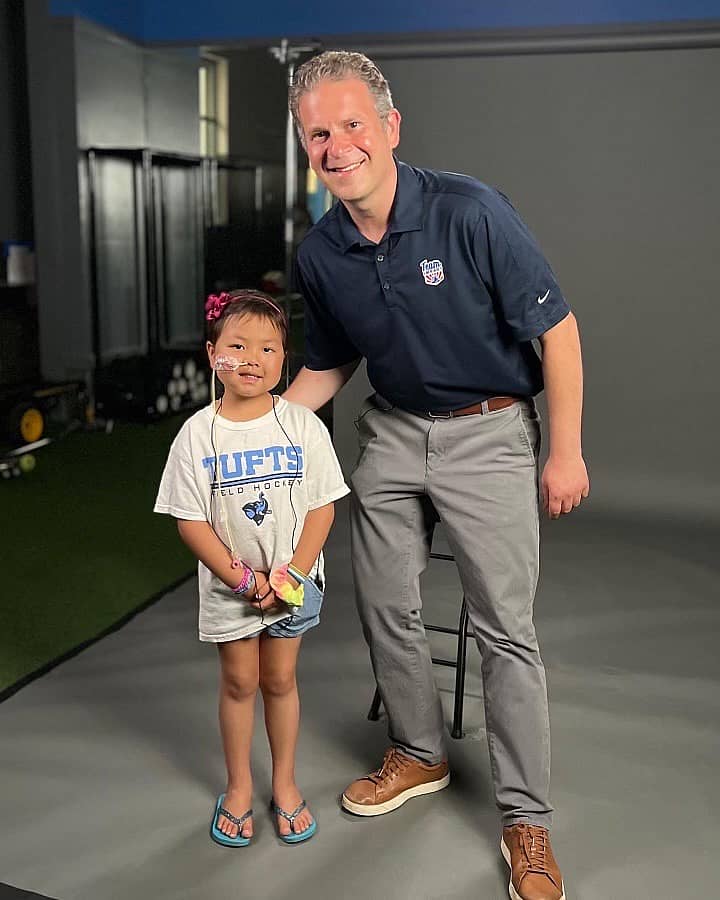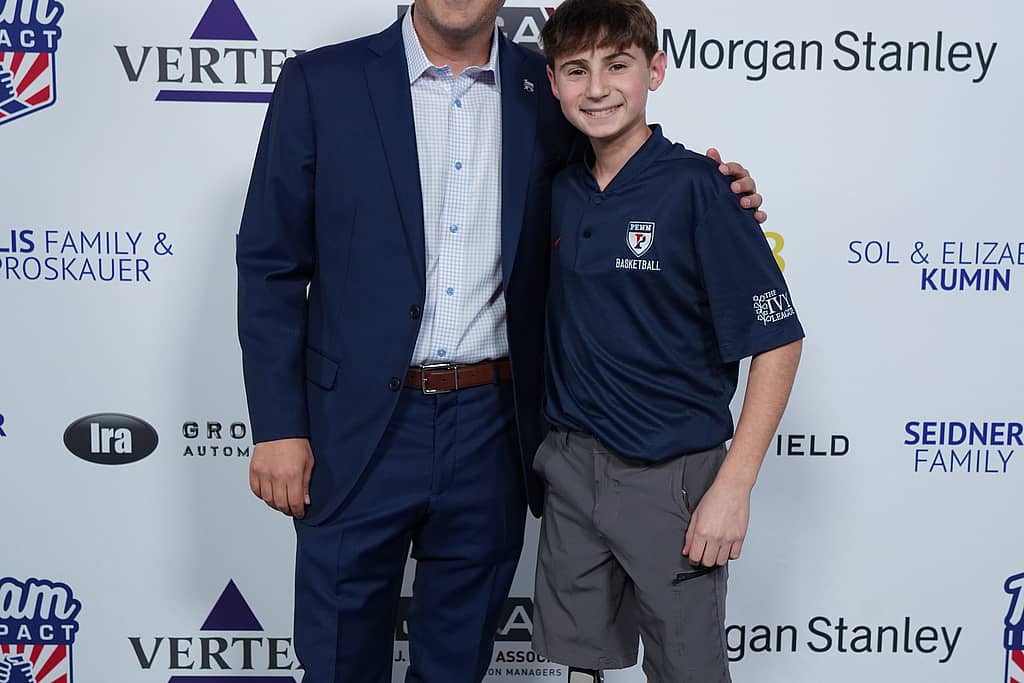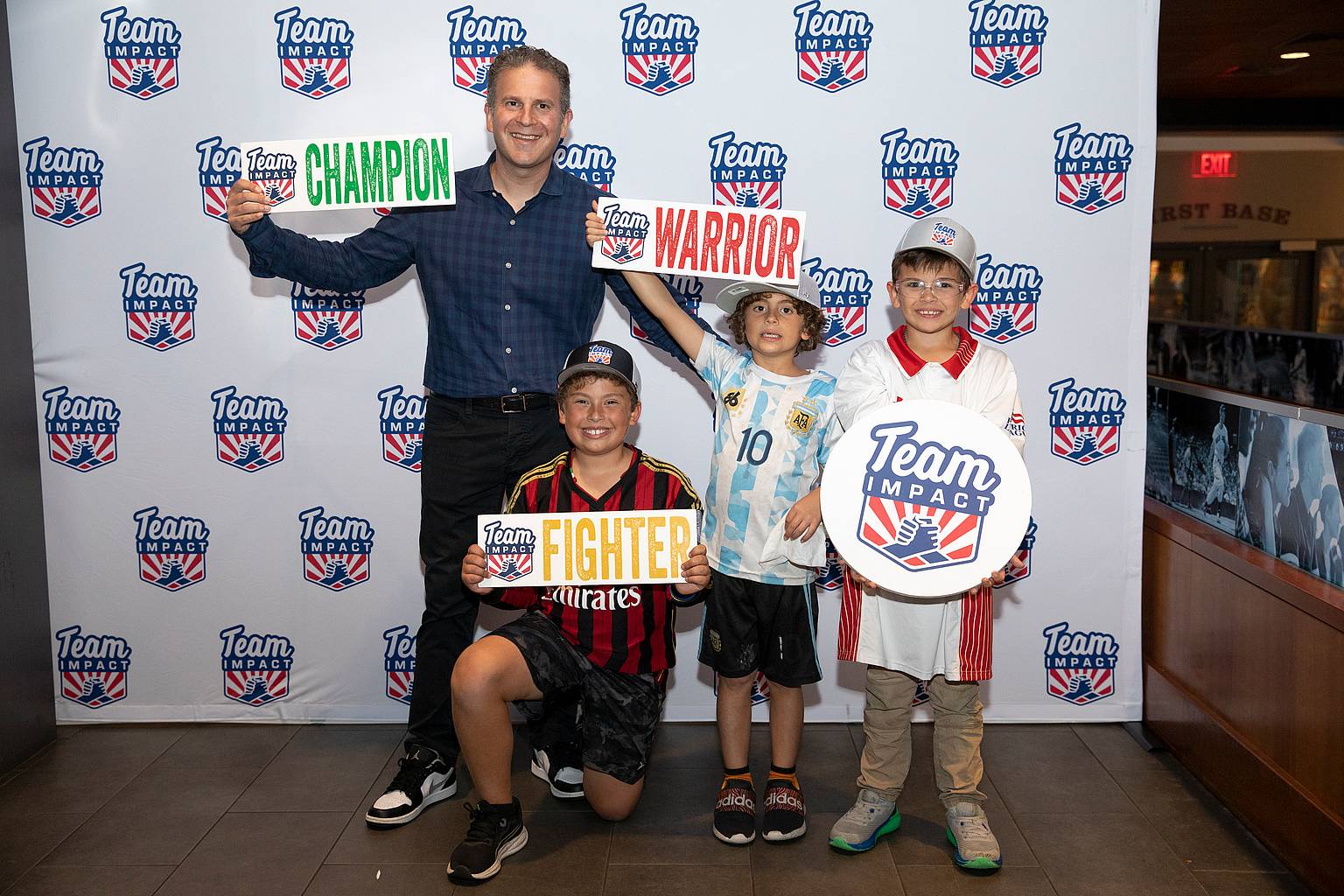By: Seth Rosenzweig
We all enter each day with unique perspectives, built and shaped by our own experiences—big and small, positive and immensely challenging. For the past five years I’ve shown up as CEO of Team IMPACT knowing that the work we do is important. The social-emotional support, camaraderie, and teamwork provided by this program help children and families get through some of the most intense and life-altering medical situations of their lives. While I can only imagine the daily struggles that come with many of the life-long illnesses and disabilities our children and families face every day, I recently experienced a medical incident that allowed me a rare and difficult glimpse into the day in a life of what our children and families face every day.
Earlier this year, I had a massive heart attack.
After a week of stubbornly ignoring multiple warning signs, I had one moment of good sense to dial 911 and unlock the door just before passing out. I’ll never forget the look the EMTs exchanged in the ambulance after seeing my initial EKG results. The doctors later told me I had nearly 100% blockage in a key artery, and a stent they inserted through my wrist is the only thing, along with that 911 call, that kept me alive that night.
I’d had pain in my chest and arms multiple times over the previous week, one that like so many others before it was filled with stress as I pushed myself to do everything and be everything to everyone around me. This particular week included many Team IMPACT meetings, work trips, time with my kids, and not much rest, like many of you. Every moment I felt pain—even sharp, searing pain right in my chest—I convinced myself that it would pass or that I could just walk it off. Despite knowing I had a family history of heart disease and having previously been monitored by a cardiologist, I did nothing.

Needless to say, I’ve done a lot of soul-searching since this happened. About the changes I needed to make in my own life. About the cultural and societal forces that lead so many men to fear showing the slightest vulnerability. About keeping things in perspective and prioritizing what’s most important.
This time in my life has made me more connected and committed to the work we’re doing here at Team IMPACT. We all feel empathy for the children and families we work with, but having my own personal health journey allowed me for the first time to truly live in the shoes of someone battling from a health perspective. We talk so much at Team IMPACT about the role we play in the social/emotional part of these families’ journeys. I experienced firsthand just how critically important it is to have a support system at a time like that. Despite what I do for a living, I still took for granted how big a role mental health plays in our overall well-being.

The importance of the work we do at Team IMPACT kept me going during this very difficult time. I decided it was time to buckle up and buckle down. I am not going to waste my second chance to do as much good in this world as possible.
Despite all the physical progress I’ve made in the months since my heart attack, I’m not ashamed to admit that I still struggle with my mental health and the emotional isolation that comes with an event like this. It’s something I know many college athletes we work with can relate to, as well as the kids and families we match with them. It’s something I’m continuing to work on, and it has to be something we all feel more comfortable talking about.
Professionally, I’ve realized that we can’t be our best selves at work if we’re not the best version of ourselves overall, and that includes mentally and emotionally. As a CEO, I’m uniquely positioned to lead by example, so I’ve tried to put a few changes in place that anyone—but especially leaders—can learn from, including:
- Trust Your Team. I always knew I had great people working with me at Team IMPACT, but still felt personally responsible for everything. Seeing everyone step up while I was down reminded me just how capable they all are, and I’ve learned how important it is to not only surround yourself with a great team, but to delegate and trust them.
- Work Smarter, Not Harder. Just like toxic masculinity affected my judgment regarding my physical symptoms, our professional culture has for too long prioritized things like working long hours, pushing yourself past the point of exhaustion, and sacrificing your personal well-being for the sake of your job. But when you really stop to think about it, so much of that is unnecessary. As an organization, I’d rather have three clear, attainable goals with measurable metrics, and prioritize only what helps us accomplish them, than have a pile of 50 activities just to make us all feel like we’re being productive.
- Work/Life Balance. It’s easy to give lip service to the concept of work/life balance. But as a leader, if you say the right things, but then continue emailing your employees throughout the weekend while never taking a vacation, they’re going to clearly see what you really value and your words will ring hollow. I used to work so hard and then crash, and I’m sure that rubbed off on my colleagues. I’m trying now to pace myself and establish a more consistent equilibrium.
- Face Problems Head On. We all want everyone to like us; it’s human nature. In the past when faced with adversity, I’d often shy away from it or try to find a way to avoid a confrontation. Now, I’m trying to be more direct and face potential issues head-on, even if that means someone is temporarily unhappy with me. Consensus is great, but as long as I can look myself in the mirror and know that a decision is in the best interest of the organization, our matched kids, our teams, and our people, I’m going to make it. And if there’s a ripple or some frustration in the wake of that decision, that’s also part of my role to deal with.

Overall, we have to do a better job of promoting a culture where it’s OK for people to be vulnerable. It’s OK to ask for help, and it’s OK to seek help. As leaders, we have a special opportunity to make that clear to our employees, through our actions as well as our words. Find time to feel your feelings. Emotional intelligence matters for all of us, but especially leaders. It’s a sign of strength, not weakness. It requires real leadership to show employees that needing to take some time for themselves won’t be held against them.
Above all else, it’s important to always remember why you’re doing the job you’re doing. If you forget your “why” and focus just on the “what” and “how,” you lose sight of everything you stand for.


